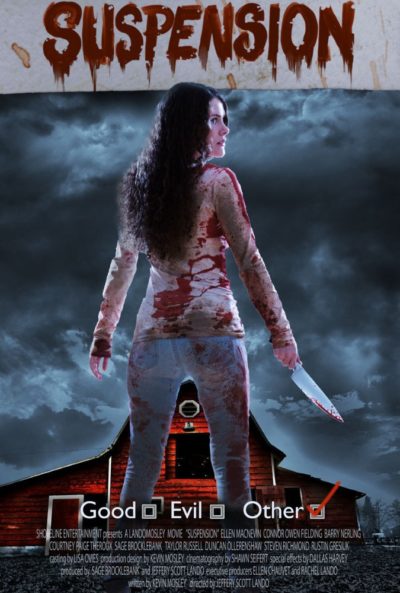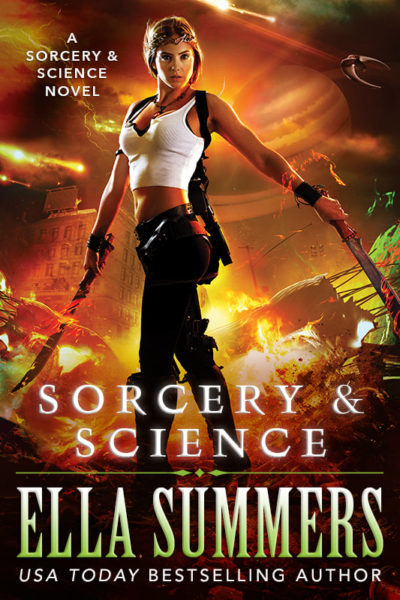★★★
“A maniac training a rebel.”
 Despite thrashing virtually every sports cliché under the sun into the ground, this just about manages to skate by on the energy of its two central performances. Adi Tomar (Madhavan) is a boxing coach who gets hit with a trumped-up #MeToo charge by the head of the boxing association Dev Khatri (Hussain), and punted off to the backwoods of Chennai. There, however, he finds a raw jewel in Madhi (Singh), a fish-seller whose sister, Lakshmi (Sorcar), has been training as boxer with an eye to joining the police. But it’s Madhi’s aggression which attracts Adi’s attention, and he eventually convinces her to strap on the gloves.
Despite thrashing virtually every sports cliché under the sun into the ground, this just about manages to skate by on the energy of its two central performances. Adi Tomar (Madhavan) is a boxing coach who gets hit with a trumped-up #MeToo charge by the head of the boxing association Dev Khatri (Hussain), and punted off to the backwoods of Chennai. There, however, he finds a raw jewel in Madhi (Singh), a fish-seller whose sister, Lakshmi (Sorcar), has been training as boxer with an eye to joining the police. But it’s Madhi’s aggression which attracts Adi’s attention, and he eventually convinces her to strap on the gloves.
From here unfolds, pretty much, exactly everything you would expect. Parental disapproval. Sibling rivalry. Madhi mistaking Adi’s devotion to her for something romantic. And, especially inevitably, Dev seeking to sabotage Adi’s hard work and claim the credit of Madhi’s success for himself. It all builds to the finals of the world championships – apparently a team sport – where Madhi goes up against Russian nemesis Natalia Riker, who battered her to a pulp in an earlier match [albeit with various extenuating circumstances]. If the Russki doesn’t quite snarl, “I must break you” before the contest, she might as well do. And if at least avoiding full-blown musical numbers, the songs all but required by Bollywood show up in the form of so many montages, they could form the basis for a drinking game.
I suspect this was inspired by the success of Mary Kom, and has much the same strengths and weaknesses. The makers seem to think that making a woman the central character is enough to offset the hackneyed story. Do not, however, take this as meaning the film is devoid of entertainment. For as mentioned, both leads crackle, and the tag-line on top accurately sums their relationship; it’s a lot of fun to watch develop, as they spar, both verbally and physically. Madhavan certainly looks the part of a former boxer, and although Singh could do with some more definition on her arms, makes up for in pure, undiluted Attitood (spelling and capital letter entirely deliberate) what she may lack in musculature.
That said, the boxing scenes are effectively enough staged that I could overlook the heroine’s wispiness, and this is considerably slicker all-round than the last Bollywood film I stumbled across on Netflix, Warrior Savitri. The cinematography is particularly effective, helping to generate a good volume of raw emotion, and this in turn helps distract from the thoroughly generic “underdog makes good” level of the story. It may even manage to catch an unwary viewer with the occasionally effective shot, such as when Madhi says to her coach, after he has just had to make a very difficult, personal decision: “You gave up everything, just for me. If that isn’t love, what is?” Ouch. If perhaps a low blow, it’s still a line that packs a wallop.
Dir: Sudha Kongara
Star: Ritika Singh, R. Madhavan, Zakir Hussain, Mumtaz Sorcar
a.k.a. Irudhi Suttru





 author is certainly prolific: this series, Of Crowns and Glory is eight books, yet only her
author is certainly prolific: this series, Of Crowns and Glory is eight books, yet only her  Playing somewhat like a more brutal version of Fatal Attraction, this sees Ray (Norlén) help out the girl next door, Tara (Dickinson) with some heavy suitcases she’s trying to move into her car. From this eventually stems a one-night stand between the pair, made all the more unfortunate by Ray’s girlfriend, Maddy (Wehrle) being stranded by the side of the road with a flat, while the pair do the dirty deed. Ray then discovers Tara’s darker side: and when I say “darker side”, I mean she makes Alex Forrest of Fatal Attraction look like a bunny-boiling beginner. With the aid of a condom from their dangerous liaison, she frames him for the rape/murder of his boss, forcing him to help her get rid of the body. And Tara is only getting warmed up. Wait until she gets her hands on Maddy…
Playing somewhat like a more brutal version of Fatal Attraction, this sees Ray (Norlén) help out the girl next door, Tara (Dickinson) with some heavy suitcases she’s trying to move into her car. From this eventually stems a one-night stand between the pair, made all the more unfortunate by Ray’s girlfriend, Maddy (Wehrle) being stranded by the side of the road with a flat, while the pair do the dirty deed. Ray then discovers Tara’s darker side: and when I say “darker side”, I mean she makes Alex Forrest of Fatal Attraction look like a bunny-boiling beginner. With the aid of a condom from their dangerous liaison, she frames him for the rape/murder of his boss, forcing him to help her get rid of the body. And Tara is only getting warmed up. Wait until she gets her hands on Maddy… The 16-part series proved an unexpected sleeper hit in its native land, more than doubling the audience from debut to finale. This is all over the place in terms of genre, with comedy, thriller, romance and action threads. While they aren’t equally successful, it does a pretty decent job of managing most of them, and is surprisingly accessible for a Western audience. The heroine is Do Bong-soon (Park B-Y), the latest in a matriarchal line of very strong women. She has been brought up to keep her power suppressed, due to the potential issues it can cause; Bong-soon has also been warned that if she misuses them, and hurts an undeserving person, they will go away. [Let’s not worry too much about how this presents an easy solution: slap one innocent, and she would become just like everyone else…]
The 16-part series proved an unexpected sleeper hit in its native land, more than doubling the audience from debut to finale. This is all over the place in terms of genre, with comedy, thriller, romance and action threads. While they aren’t equally successful, it does a pretty decent job of managing most of them, and is surprisingly accessible for a Western audience. The heroine is Do Bong-soon (Park B-Y), the latest in a matriarchal line of very strong women. She has been brought up to keep her power suppressed, due to the potential issues it can cause; Bong-soon has also been warned that if she misuses them, and hurts an undeserving person, they will go away. [Let’s not worry too much about how this presents an easy solution: slap one innocent, and she would become just like everyone else…] Having started our acquaintance with the Ladies Shooting Club trilogy last year with the third book, The Blacksmith’s Bravery (long story), my wife Barb and I are now reading the other two volumes in order. Neither of us were disappointed in this one! My reviewing it here was a happy surprise. Although the covers of all three books feature gun-toting women, and a basic plot current of the trilogy is women learning to take responsibility for defending themselves and others, the heroine of the third book wasn’t actually called on to engage in any gun-fighting action. So I assumed the same would be the case here. But [at the risk of a mild “spoiler” –though for fans of this site, this will add interest rather than spoil it :-)], in this series opener, our heroine does need to step up to the plate with a Winchester. (Contrary to many fictional and movie depictions, rifles were used more for serious shooting in the Old West than six-guns). Despite that difference, though, both books have a lot of similarity in tone, content and style. Since I gave the concluding volume five stars on Goodreads, that’s a good thing!
Having started our acquaintance with the Ladies Shooting Club trilogy last year with the third book, The Blacksmith’s Bravery (long story), my wife Barb and I are now reading the other two volumes in order. Neither of us were disappointed in this one! My reviewing it here was a happy surprise. Although the covers of all three books feature gun-toting women, and a basic plot current of the trilogy is women learning to take responsibility for defending themselves and others, the heroine of the third book wasn’t actually called on to engage in any gun-fighting action. So I assumed the same would be the case here. But [at the risk of a mild “spoiler” –though for fans of this site, this will add interest rather than spoil it :-)], in this series opener, our heroine does need to step up to the plate with a Winchester. (Contrary to many fictional and movie depictions, rifles were used more for serious shooting in the Old West than six-guns). Despite that difference, though, both books have a lot of similarity in tone, content and style. Since I gave the concluding volume five stars on Goodreads, that’s a good thing! This workmanlike effort, if not particularly memorable, does at least cross two genres not frequently combined: the Western and the post-apocalypse movie. For it takes place in a world where global warming and other stuff have created a poisoned wasteland. Consequently, the currencies of choice are water purification tablets and silver, the latter being the raw ingredient in the air filtration masks which have become essential. Using vehicles powered by fossil fuels is totally outlawed, and those who do have rewards placed on their heads, attracting the attention of bounty hunters.
This workmanlike effort, if not particularly memorable, does at least cross two genres not frequently combined: the Western and the post-apocalypse movie. For it takes place in a world where global warming and other stuff have created a poisoned wasteland. Consequently, the currencies of choice are water purification tablets and silver, the latter being the raw ingredient in the air filtration masks which have become essential. Using vehicles powered by fossil fuels is totally outlawed, and those who do have rewards placed on their heads, attracting the attention of bounty hunters. Bullied by her peers at high school, Emily (MacNevin) takes refuge in drawing. Although, rather than high art, her preferred method of expression is horror comics: working on these in class is what gets her the titular punishment, imposed by a disapproving teacher. Emily’s strip depicts the havoc wreaked by a serial killer – who might (or might not) be inspired by her absent father. However, the line between imagination and reality becomes blurred, and on the night of a student party to which Emily has not been invited, someone starts stalking and murdering those who have tormented her. Looks like Daddy is out, and protecting his little girl – or, is he?
Bullied by her peers at high school, Emily (MacNevin) takes refuge in drawing. Although, rather than high art, her preferred method of expression is horror comics: working on these in class is what gets her the titular punishment, imposed by a disapproving teacher. Emily’s strip depicts the havoc wreaked by a serial killer – who might (or might not) be inspired by her absent father. However, the line between imagination and reality becomes blurred, and on the night of a student party to which Emily has not been invited, someone starts stalking and murdering those who have tormented her. Looks like Daddy is out, and protecting his little girl – or, is he? After Megan (Watson) loses her job, boyfriend and the roof over her head in the same day, she decides to head off to Atlanta, where friend Amanda (Riggs) puts her up for a bit. Amanda’s boyfriend (Rollins) is manager at a strip club, and gives Megan a job as a cocktail waitress. But after realizing the gap in earnings between those employees who keep their clothes on, and those who don’t, Megan decides to make the jump into strip-tease. This rapidly brings her into conflict with Jazz (Brown), another stripper who rules the club through terror and intimidation, along with the help of her cronies. She takes it upon herself to make Megan’s life hell. However, she can only be pushed so far, before Megan and Amanda, push back.
After Megan (Watson) loses her job, boyfriend and the roof over her head in the same day, she decides to head off to Atlanta, where friend Amanda (Riggs) puts her up for a bit. Amanda’s boyfriend (Rollins) is manager at a strip club, and gives Megan a job as a cocktail waitress. But after realizing the gap in earnings between those employees who keep their clothes on, and those who don’t, Megan decides to make the jump into strip-tease. This rapidly brings her into conflict with Jazz (Brown), another stripper who rules the club through terror and intimidation, along with the help of her cronies. She takes it upon herself to make Megan’s life hell. However, she can only be pushed so far, before Megan and Amanda, push back. The blurb for this one reads, “Terra Cross is just your typical paranormal princess. She plays poker with goblins and leprechauns. She savors her morning muffin from the Pacific Sunrise Bakery in suburban California. She solves galactic crime cases. And on a particularly wild day, she can even see into the future.” It is somewhat inaccurate, at least as far as this novel goes. I don’t recall any poker at all, muffins appear once, and as for the crime-solving… Well, sorta but not really. There is, however, likely good reason, since the novel is a prequel to Summers’s “Sorcery and Science” series, in which I presume Terra does more of the above.
The blurb for this one reads, “Terra Cross is just your typical paranormal princess. She plays poker with goblins and leprechauns. She savors her morning muffin from the Pacific Sunrise Bakery in suburban California. She solves galactic crime cases. And on a particularly wild day, she can even see into the future.” It is somewhat inaccurate, at least as far as this novel goes. I don’t recall any poker at all, muffins appear once, and as for the crime-solving… Well, sorta but not really. There is, however, likely good reason, since the novel is a prequel to Summers’s “Sorcery and Science” series, in which I presume Terra does more of the above.